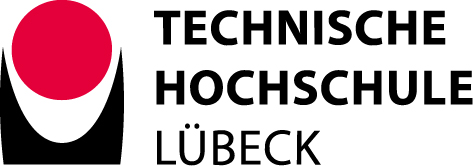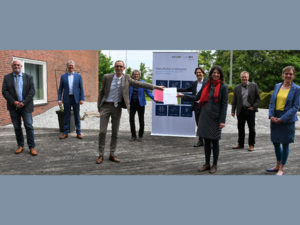In Schleswig-Holstein, all learners and teachers at universities are to be taught basic skills in the use of artificial intelligence (AI). To this end, the "Future Skills" project is developing an online learning system that is unique in Germany. Today (May 27) in Kiel, State Secretary Dirk Schrödter, head of the State Chancellery, together with State Secretary for Science Oliver Grundei, presented a funding notice for almost 1.6 million euros to representatives of Lübeck University of Technology and Christian Albrechts University in Kiel.
"Artificial intelligence is a topic of paramount importance also for Schleswig-Holstein. AI will also become more and more visible in everyday life in the coming years. I am therefore pleased that today we can launch a significant project from the AI action framework adopted by the state government," Schrödter said. He added that the state had found strong partners for this: The TH Lübeck (funding amount a good 1.3 million euros until the end of 2022) is in demand nationwide for the development of online solutions in teaching. CAU Kiel (306,000 euros) will provide scientific support for the project.
Stronger online structure
"The Corona crisis shows us that we need such a stronger online structure. I firmly believe that Future Skills is a great contribution to making our education system more resilient to crises and disasters that can shake up our daily lives," the head of the State Chancellery said. The project is also open to cooperation with the business community, he said. "Future Skills should help ensure that all learners and teachers have basic skills and an understanding of what artificial intelligence actually is and what it means for teaching and research. I am therefore pleased that we are able to fund the project so extensively," said Science State Secretary Oliver Grundei.
"In the fall, the first AI courses will be available to students. They will be able to take cross-curricular, credit-bearing courses on the platform, which will strengthen Schleswig-Holstein as a place to study overall," said Prof. Dr. Monique Janneck, Digital Teaching Officer at TH Lübeck.
"Future Skills is an exciting project for us not only in terms of teaching AI skills to students. As researchers, we are also very interested in how students use the platform and what additional needs will arise from it in the future. We are pleased to be able to investigate these questions alongside the project," added Professor Ilka Parchmann, Vice President of CAU and Head of the Department of Chemistry Didactics at the IPN - Leibniz Institute for Science and Mathematics Education in Kiel.
Future Skills: Linking the systems
The content will come from the universities themselves, but also from external partners. Starting in 2021, teachers will be able to search for, find and exchange learning content in an uncomplicated way. During the Corona crisis, he said, it once again became clear how powerful universities are when they collaborate on technical solutions or offerings. "Future Skills" links the universities' existing learning space management systems via interfaces. In this way, the project could gain valuable insights in the design of intelligent learning platforms. "Schleswig-Holstein is successfully leading the way here in educational technologies in its universities and is actively shaping the digital transformation," says project manager Farina Steinert from TH Lübeck. The Future Skills platform is easily scalable and can be extended to other educational areas and target groups, she added.
Schrödter and Grundei thanked all those involved for their excellent cooperation: "The fact that we were able to move so quickly with this project is also due to the commitment of many participants and the good interaction between universities, administration and politics. Many thanks to all those involved!





